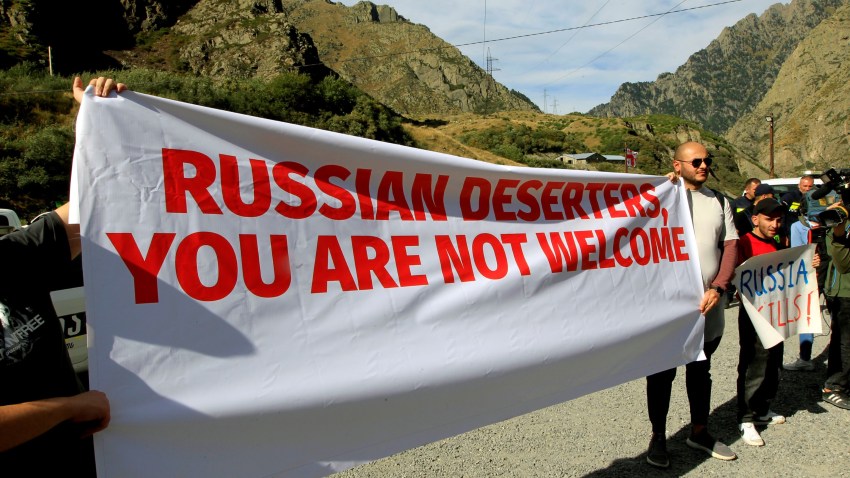Since the onset of the war in Ukraine, hundreds of thousands of Russian men have fled the country to avoid being pressed into military service. The numbers increased after Sept. 21, when Russia implemented a partial mobilization of its draft-eligible male population. It was estimated that as many as 700,000 Russians left the country in the first two weeks after the partial mobilization alone—more than the number that were forcibly enlisted. Many found their way to nearby countries such as Georgia, Kyrgyzstan and Turkey. Some went as far afield as South Korea, and a few landed in the United States.
The response from European nations to an influx of asylum-seekers from Russia seeking to avoid conscription has been conflicted, however. France and Germany signaled they might be willing to take in Russian conscripts fleeing the war as asylum-seekers. But some countries, especially those bordering Russia, are adamant that they should be forced to stay in Russia. Estonia, Latvia and Lithuania have stated they will not allow Russian refugees to enter. Finland barred Russians from entering even on tourist visas.
Why are certain European Union member states so opposed to receiving Russians who are fleeing an illegal war? The reasons given by EU countries for denying them entry are two-fold. First, some fear that an influx of Russian male refugees creates a security risk, providing opportunities for Russian espionage and even sabotage inside their countries. Second, there is the concern that, as Russia empties of opponents to the war, it will only strengthen pro-war sentiment and empower hardliners. Two days after the mobilization began, amid the initial exodus it triggered, Lithuanian Foreign Minister Gabrielius Landsbergis tweeted, “Russians should stay and fight. Against Putin.”

